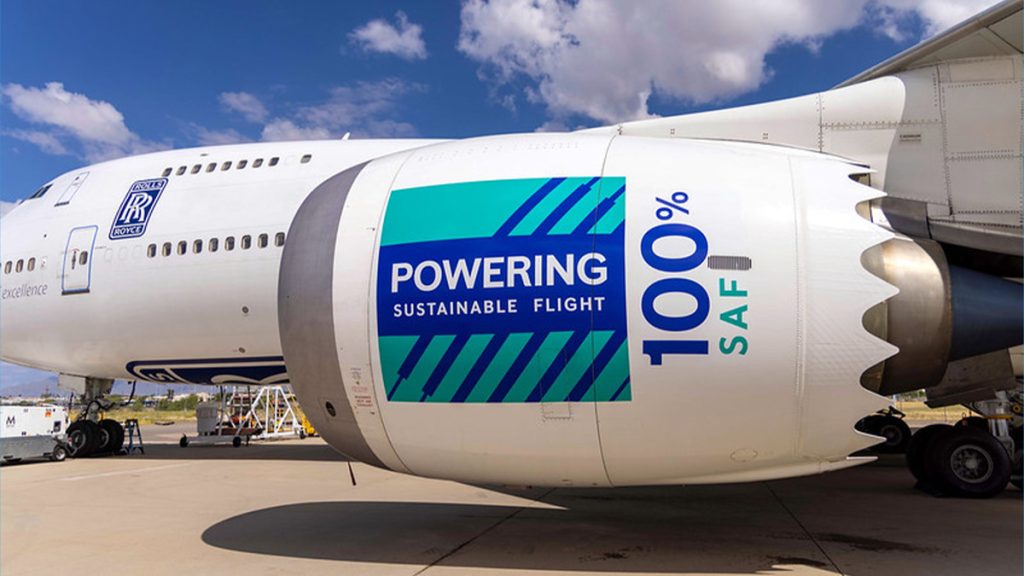Electric vehicle technology is rapidly advancing, becoming increasingly prevalent in the automotive industry. However, this progress has not yet spread to other transportation sectors. While the concept of electric flying cars has emerged, air and sea travel continue to rely heavily on fossil fuels. In an effort to address this issue, Rolls-Royce is exploring the use of Sustainable Aviation Fuel (SAF), a renewable fuel derived from waste, as an alternative to traditional jet fuel. This initiative aims to reduce the environmental impact of air travel and contribute to a more sustainable future for transportation. Here are the details…
Rolls-Royce Confirms All of Its Current Engines Can Run On 100 Percent SAF
Efforts to reduce the use of fossil fuels have been ongoing for a long time, primarily due to the limited nature of fossil energy and its presence in specific locations worldwide. One of the best alternatives developed over time is Sustainable Aviation Fuel (SAF), produced from renewable sources such as waste oils, vegetable oils, and algae.

SAF, set to be the future standard in the aviation industry, has been tested by blending it with jet fuel for a while due to efficiency concerns. However, Rolls-Royce has announced that its engines are ready to operate using 100% sustainable aviation fuel. The company conducted a series of tests to convince the world of this alternative.
In the tests carried out at Rolls-Royce’s facility in Canada, the Trent 700, 800, 900, 1000, XWB-84, XWB-97, 7000, BR725, and Pearl 700, 15, and 10X aircraft engines were used. The tests were concluded entirely successfully, and the CEO of the company, Tufan Erginbilgiç, made the following statements regarding the matter:
“Announcing that all our currently produced engines are compatible with 100% SAF is a significant step for both Rolls-Royce and the general aviation industry. This is also strong evidence of our commitment to achieving net-zero emissions by 2050 and supporting customers in reaching this goal.”
SAF indeed has the potential to revolutionize the aviation sector and phase out conventional jet fuels. However, whether it will become a true standard is currently uncertain. Who knows, perhaps electric aircraft engines will become much more sensible options when the time comes.
RELATED:
- Best Smart Treadmills of 2023
- Rolls-Royce Debuts First Pure Electric Car in China
- Rolls-Royce Develops World’s First Hydrogen-Fueled Aircraft Engine
- Rolls-Royce’s all-electric aircraft makes its maiden flight!
- GAC Unveils World’s First Ammonia Car Engine: Is This the End of Electric Vehicles?
(via)







